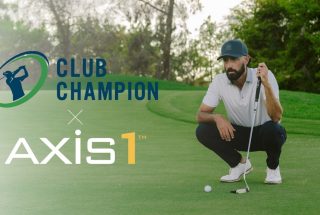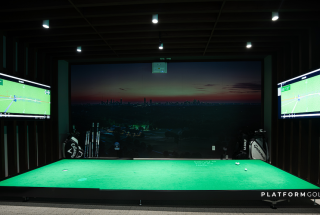 |
Mark King, CEO of TaylorMade-Adidas Golf Co., has overseen a large expansion in revenue at the company over the last five years. But even with the success of TaylorMade, King has had issues with a couple of acquisitions -Ashworth and Adams Golf. King is also concerned with the direction in which the game of golf is headed. The Golf Wire’s Alex Miceli spoke with King for this week’s 10-Minute Interview.
Q.: In the last couple of years, TaylorMade has made some high-profile acquisitions. One is Ashworth and the other was Adams Golf. Fair to say, the Ashworth one is probably still a work in progress. With Adams, you have handled it differently and let it stay mostly independent. How do you feel about both acquisitions currently?
KING: Our goal is to be big … we’re a part of a growth company. If we’re not growing, we’re no longer of value to our parent company, so we have to grow, and our parent company understands that in a no-growth industry, part of the growth strategy is acquisition.
So we’ve acquired two brands in the last few years. We bought Ashworth, and we took a strategy that’s a normal acquisition strategy when you’ve got a bunch of resources. Three things happened with Ashworth.
It was a lot more broken than we thought. Secondly, we bought it and it was all cotton, exactly when the industry went from kind of a combination of synthetic and cotton to all synthetic. So now we have a broken brand, a cotton brand, and it’s a problem. And then we got rid of all of the people that made up the Ashworth brand, and we thought we could just do it through departments, and a lot of that has not worked.
Today, the Ashworth brand is $60 million, and if you went and looked at all of the golf apparel brands, $60 million would put you in the top five, so it’s bigger than you think it is because we’re global. Right now it’s the fastest growing apparel brand.
I still believe that 10 years from now the chance of Ashworth being bigger than Adidas or Nike as an apparel brand is an opportunity. I don’t know if it will happen, but it’s an opportunity. We had different plans for Ashworth, but we had to fix it first.
I haven’t been happy with the way we’ve dealt with it or the way it’s progressed until right now. Believe me, it isn’t booming, but it’s definitely going in the right direction.
Adams we bought and had a 16 percent top line increase last year. That happened because where they used to have distributors around the world, we’re now selling it out of our own offices, which is a lot more effective than not.
We did $120 million in Adams and did $104 or 105 the year before, so it’s up about 15 percent. This year we think it’ll go up again about another 15 or 20 percent, and the following year we think it’ll actually have better growth because we will really have traction outside the United States, and there’s pretty good interest for it.
We don’t want Adams to compete with TaylorMade, Callaway, Nike and Ping, because it’s just another brand. So you’re going to see focuses on opportunities, whether they’re box sets or hybrid sets or second shot [clubs]. So it’s going to fit in, I think, into niches as opposed to being TaylorMade Light. If you didn’t want TaylorMade, you could buy Adams at a lower price. That’s kind of the way it was.
We don’t see that as a strategy. We see it as easy-to-hit niche clubs. We’re going to launch a bunch of interesting products that aren’t mainstream clubs. I think we’ll end up with somewhere between a $200 and $250 million business in three to five years, and when we bought Adams, it was $100.
Q.: Where will you see those sets do you think? Will you see them in something other than green grass?
KING: Oh, sure. I think it’s definitely a play for a place like Dick’s [Sporting Goods]. I think you’ll see clubs like Tight Lies in all distribution. But I don’t think the small green grass guy has enough space to buy the line of Adams, the line of TaylorMade. You know he’s going to put Titleist in. You’re going to pick between Callaway and another one.
So I could see a guy carrying different products. I think some of the products will sell big box, sporting goods; I think some of them will sell green grass.
And we can do things there that other companies can’t. We can experiment. We’re going to launch a set of golf clubs that you see in the innovation room. We don’t want to do that on TaylorMade, we want to do it through Adams. We think we’re going to have some fun with that Adams brand over the next few years.
Q.: There’s a rumor about some of the drivers at Adams may not be conforming and would be sold as non-conforming?
KING: No, not at this point. I’m not ruling that out for the future. That rumor has been going around. There are no plans right now. If we’re going to launch a non-conforming club as a non-conforming club and market it, I will tell you. But right now there are no plans.
I think the entire industry at some point in time is going to say “For us to grow we’ve got to create a new buzz,” so we’re going to say they’re non-conforming. But I don’t think that’s for a while. That’s not true.
Q.: In your remarks at the PGA Merchandise Show you talked about the future of golf. Where do you think we are in 20 years in this golf industry?
KING: I think that if we had a vision for the industry and we were willing to make changes … the way I run my business, where is TaylorMade going to be in 20 years? A lot bigger than it is today. It isn’t going to look like it does today. We could be selling fishing poles in 20 years. I don’t know. I just know this: It isn’t going to look the same.
If golf looks the same 20 years from now as it does today, it’ll be a dead sport. It will. There are no new people coming in.
Our society is so different today than it was when golf was thriving. That old model of golf is not going to thrive 20 years from now. But I believe it’s going to change because it’s going to … and I don’t think it’s going to die.
Last year when I said all those things that I really think about the USGA not being relevant, all I meant was if they don’t change with the times of society, we’re all going to be irrelevant. Not just the USGA, but also TaylorMade and the industry are not evolving in how we bring people in.
There’s a lot of innovation in golf, but it’s not the golf experience, it’s training tools, it’s drivers, it’s shoes, but it’s not the real thing. And everybody wants to talk about the USGA and rules. We don’t need new rules. We don’t need looser rules on innovation for technology. If a driver went 15 yards further, it isn’t bringing Bob by Smith into the game. You know what I mean? It’s not.
Contact:



